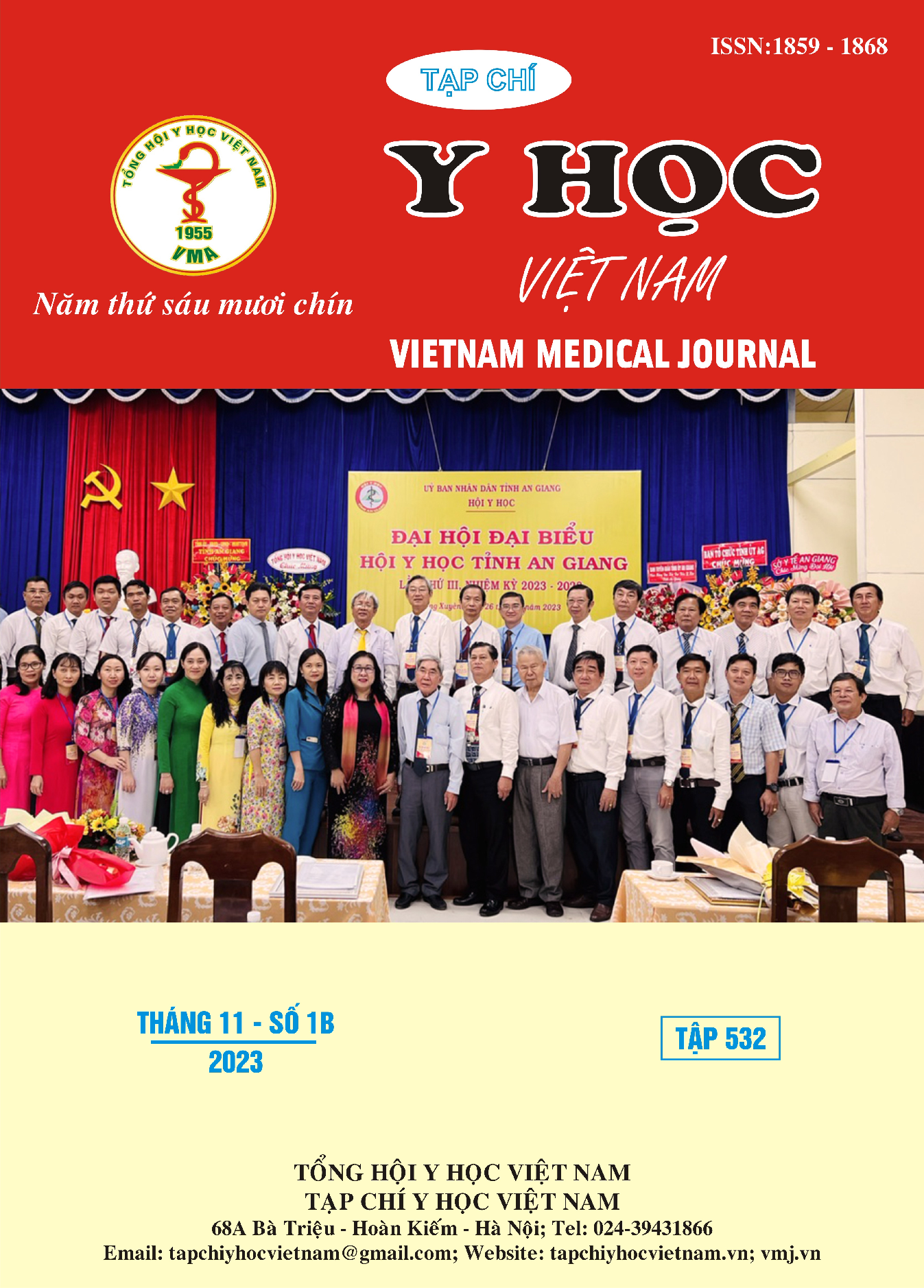ANGIOGRAPHIC SEVERITY OF CORONARY ARTERY DISEASE IN PATIENTS WITH NON-ST ELEVATION MYOCARDIAL INFARCTION AND FRAGMENTED QRS
Main Article Content
Abstract
Fragmented QRS (fQRS) complexes are novel electrocardiographic signals, which reflect myocardial conduction delays in patients with coronary artery disease (CAD). The fQRS complexes in 12 lead ECG may develop in the background of acute coronary syndrome (ACS). This study was aimed to evaluate the angiographic severity of CAD among non-ST ACS patients having fQRS in the ECG. Methods: This cross-sectional observational study was conducted at the Nhan Dan Gia Dinh hospital from Jan 2023 to June 2023. All patients underwent 12-lead surface ECG at admission before coronary angiogram (CAG) and were divided in two groups according to presence or absence of fQRS complex. After CAG, severity of CAD was assessed and compared by quantity and degree of coronary stenosis between two groups. Results: This study included 99 non-ST ACS patients who underwent invasive coronary angiography (CAG). fQRS was present in 35 patients (35.4%) and 64 patients (64.6%) in non fQRS group. Among fQRS patient group, the highest percentage had triple vessels. And those had a significantly higher frequency than non fQRS group (65.7% vs 42.2%, p=0.04). With fQRS group, the most severe 1 vessel stenosis rate is 97.1%. Conclusion: This study revealed that presence of fQRS in ECG is associated with more severity of CAD and the patient should be managed and targeted for aggressive management.
Article Details
Keywords
Fragmented QRS complexes (fQRS), Coronary artery disease (CAD), Acute coronary syndrome (ACS), Non-ST-elevation myocardial infarction (NSTEMI), Electrocardiogram (ECG).
References
2. Roth GA, Mensah GA, Johnson CO, et al. Global Burden of Cardiovascular Diseases and Risk Factors, 1990–2019: Update From the GBD 2019 Study. Journal of the American College of Cardiology. 2020/12/22/ 2020;76(25):2982-3021.
3. Das MK, Michael MA, Suradi H. Usefulness of fragmented QRS on a 12-lead electrocardiogram in acute coronary syndrome for predicting mortality. The American journal of cardiology. Dec 15 2009;104(12):1631-7. doi:10.1016/ j.amjcard. 2009.07.046
4. Thygesen K, Alpert JS, Jaffe AS, et al. Fourth Universal Definition of Myocardial Infarction (2018). Circulation. Nov 13 2018;138(20):e618-e651. doi:10.1161/cir.0000000000000617
5. Das MK. Significance of a fragmented QRS complex versus a Q wave in patients with coronary artery disease. Circulation. May 30 2006; 113(21): 2495-501. doi: 10.1161/ circulationaha.105.595892
6. Collet JP, Thiel H, Barbato E. 2020 ESC Guidelines for the management of acute coronary syndromes in patients presenting without persistent ST-segment elevation. European heart journal. Apr 7 2021;42(14):1289-1367. doi:10.1093/eurheartj/ehaa575
7. Ferdous MAR, Mandal M, Kabir FI. Angiographic Severity of Coronary Artery Disease among Patients with Non-ST Elevated Acute Coronary Syndrome having Fragmented-QRS in ECG. University Heart Journal. 01/02 2020;16(1):28-32. doi:10.3329/uhj.v16i1.44819
8. Abu Rahman F, Mandal M. Angiographic Severity of Coronary Artery Disease among Patients with Non-ST Elevated Acute Coronary Syndrome having Fragmented-QRS in ECG. University Heart Journal. 01/02 2020;16:28-32. doi:10.3329/uhj.v16i1.44819


